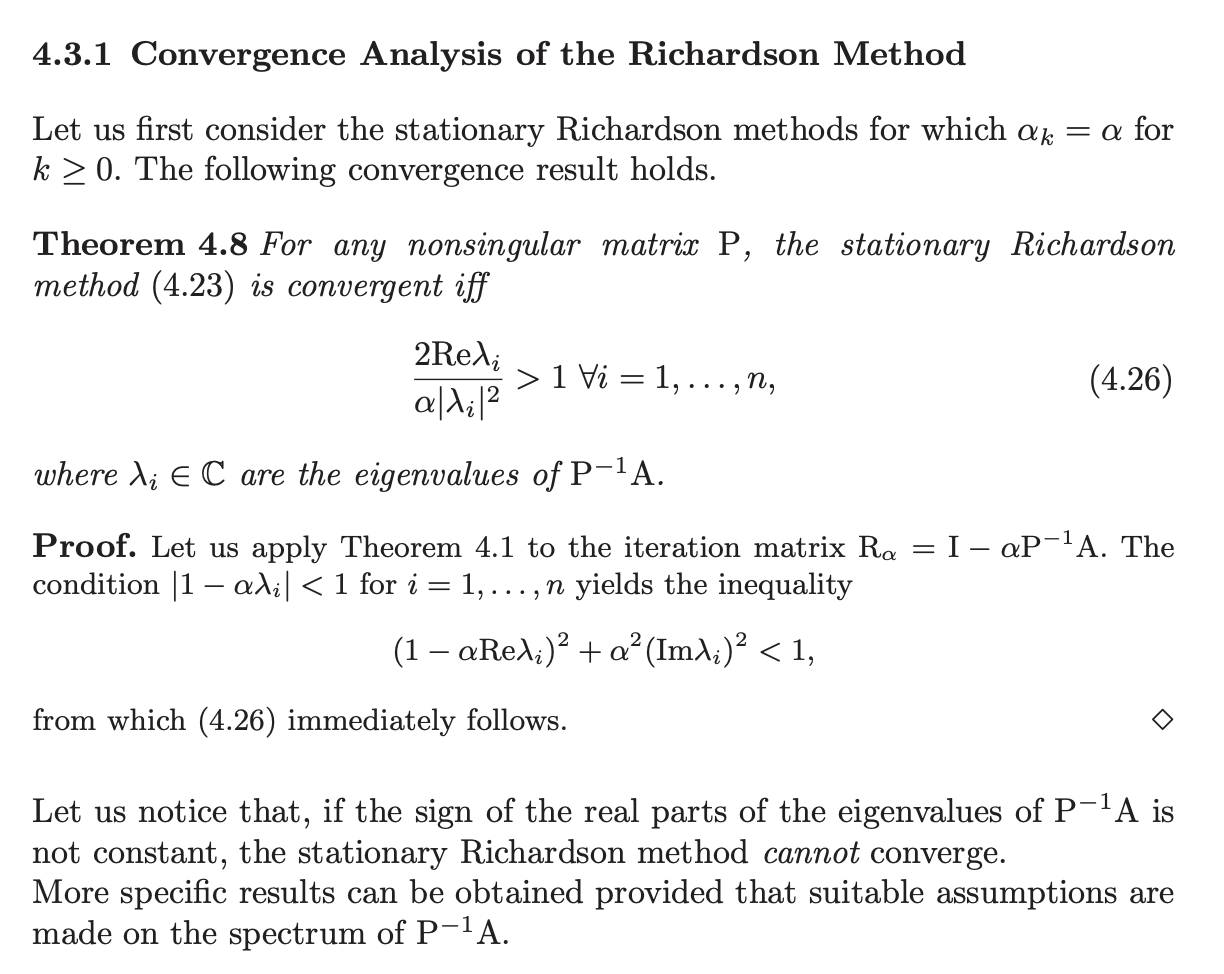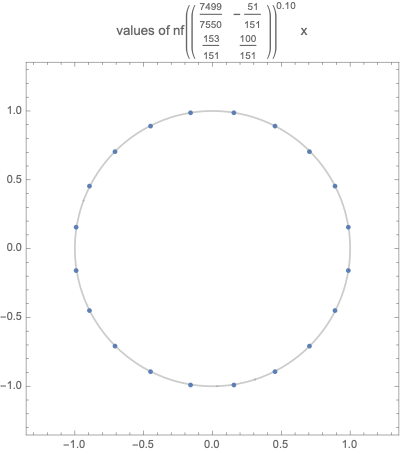Suppose we solve an $m\times n$ full-rank system of equations $Ax=b$ by iterating the following for a small enough $\mu>0$
$$x=x+\mu B(b-Ax)$$
Is there a nice description of kinds of $B$ which make this iteration convergent? For instance, for $n=1$, $A,B$ can be viewed as vectors, and this iteration converges iff their dot product is positive. What about $n>1$?
- $B=A^\dagger$ is (trust-region) Newton's method
- $B=A^T$ is gradient descent on least-squares objective
- $B=I$ is modified Richardson iteration, only works for positive-definite $A$
Curious if there's a family of methods between 2. and 3. -- converges for any full-rank $A$, but without relying too much on $A^Ty$ (much more expensive than $Ax$ in my application)
Edit
It seems sufficient that $(BA)^T+BA\succ 0$. This means $\mu$ can be made small enough to ensure each step is contractive. However, it is not necessary since for not normal $BA$, convergence may happen after initial transient "hump".
it is necessary (but not sufficient) that all eigenvalues of $BA$ have a positive real part. Negative eigenvalue means you'll be pushed away from solution in those direction.
which means it is necessary that $B=-SA^\dagger$ for some stable matrix $S$ when $n=m$
It is sufficient that $B=A^T P$ for some positive definite $P$. This ensures update has form to $I-\mu C$ with positive definite $C$
Last condition seems too restrictive, since we could use $B=\text{sign}(A^T)$

